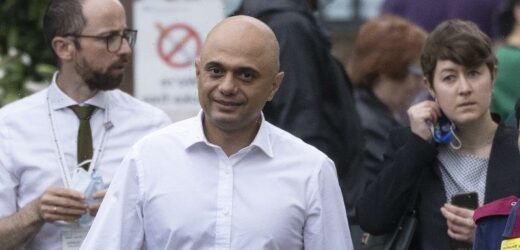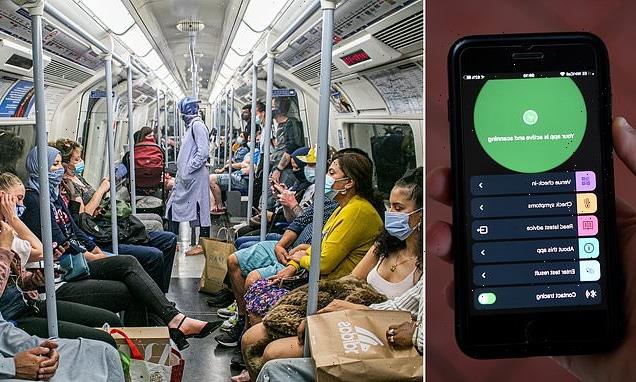For our free coronavirus pandemic coverage, learn more here.
London: The British Prime Minister, Chancellor and other senior government figures may be forced to go into self-isolation after health minister Sajid Javid tested positive for COVID.
The positive result came as the health ministry announced that every adult had been offered a first dose of COVID-19 vaccine, ahead of the end of legal restrictions in England on Monday.
Health secretary Sajid Javid (centre) has tested positive to COVID-19 despite receiving two vaccine doses. Credit:Getty Images
Prime Minister Boris Johnson’s target was for every adult who wanted to a shot to be able to get one by July 19. So far, 87.8 per cent of adults have received a first shot of COVID-19 vaccine, with the government also meeting a target to give two-thirds of adults two doses of vaccine by Monday.
The Health Secretary received the positive result from a lateral flow test that he took after feeling “a bit groggy” on Friday night.
He is now self-isolating at home with his family pending the results of a more accurate PCR test.
In a tweet, he wrote: “This morning I tested positive for COVID. I’m waiting for my PCR result, but thankfully I have had my jabs and symptoms are mild.
“Please make sure you come forward for your vaccine if you haven’t already.”
Vaccines are not 100 per cent effective at preventing infection, but fully vaccinated people are less likely to get seriously ill with COVID-19 even if they can test positive.
On Tuesday, Javid was visiting a care home in south London, and earlier that day he was in parliament, mixing with MPs and fellow cabinet ministers.
During his visit to Aashna House care home – which has a 100 per cent vaccination rate among staff and residents, the majority of whom are from a black and minority ethnic background – Javid said he wanted to “thank care home staff” and “staff across the country for the incredible work they have been doing.”
There is now speculation that anyone Javid came into prolonged contact with in Whitehall last week will be required to self-isolate.
That could include Boris Johnson, as well as his own departmental staff and the Met Police protection officers who accompany him wherever he goes.
A government source said: “I don’t see how half the cabinet doesn’t end up in isolation by the end of the week.”
Javid replaced Matt Hancock as Health Secretary last month, after CCTV footage emerged showing his predecessor kissing his senior adviser Gina Coladangelo in his office in breach of social-distancing rules.
Johnson is proceeding with the full re-opening of the economy despite a fresh surge of cases fuelled by the highly transmissible Delta variant. New infections are running at their highest level since January.
Some scientists have expressed concern about the re-opening given the high case rates, the substantial proportion of the population which is not yet fully vaccinated and the projected increases in hospitalisations and deaths.
Meanwhile, Britain has opted against mass COVID-19 vaccinations for all children and teenagers, with ministers instead preparing to offer the jabs just to vulnerable 12 to 15-year-olds and those about to turn 18.
The Joint Committee on Vaccination and Immunisation (JCVI) is believed to have advised ministers against the rollout of vaccines to all children until further evidence is available on the risks.
Instead, under guidance due to be issued tomorrow, jabs will be offered to children aged between 12 and 15 who are deemed vulnerable to COVID-19, or who live with adults who are immuno-suppressed or otherwise at severe risk from the disease. Vaccines will also now be offered to all 17-year-olds who are within three months of their 18th birthday.
The move is at odds with decisions taken in countries such as the US, Israel and France, where children over the age of 12 are being routinely vaccinated.
Professor Sarah Gilbert, one of the scientists behind the AstraZeneca vaccine, said the benefits of vaccinating children were “much lower and poorer” than inoculating adults. She added: “With still a limited number of doses available to vaccinate the world, we should use those doses for health care workers and for older individuals in countries that don’t yet have a vaccine.”
The UK decision is understood to have been made on a “risk-benefit” analysis based on protecting children rather than a calculation taking into account excess supplies that the country could ship for use in adults abroad.
The Telegraph, London; Reuters
Most Viewed in World
From our partners
Source: Read Full Article



